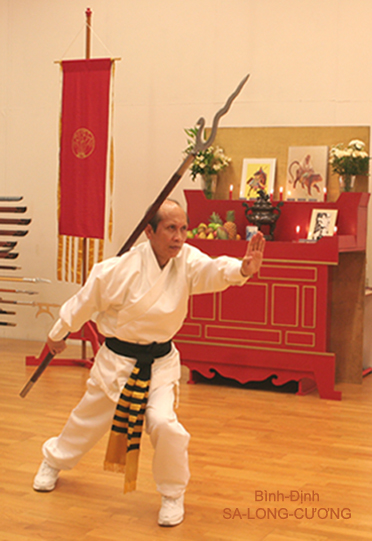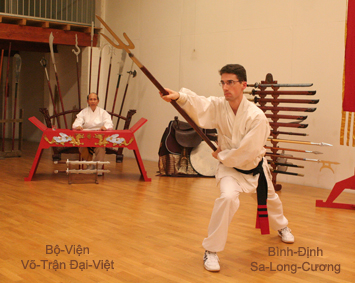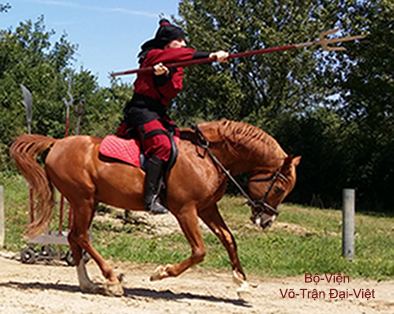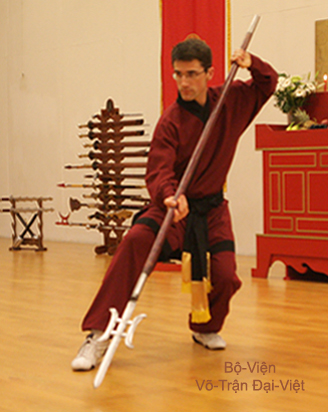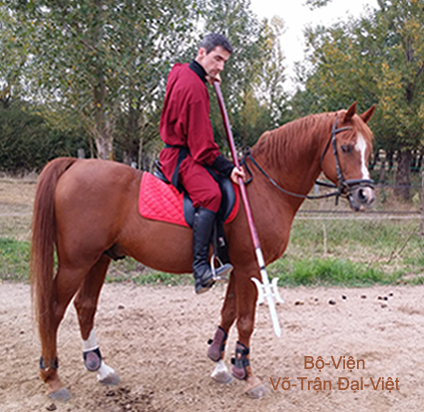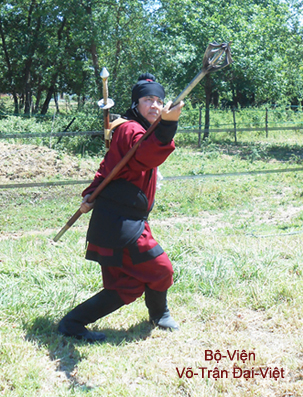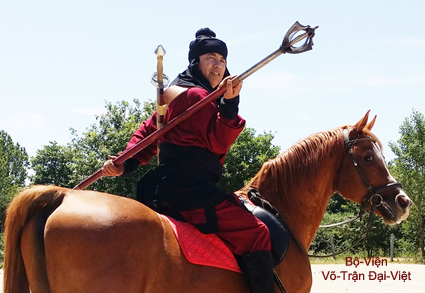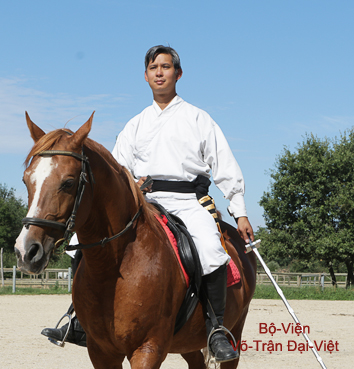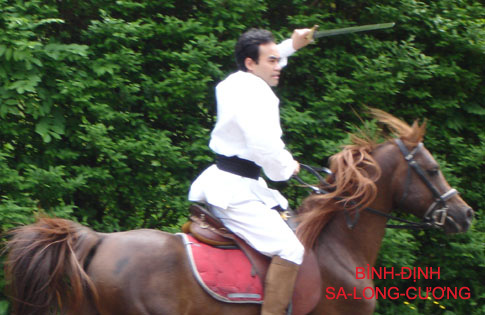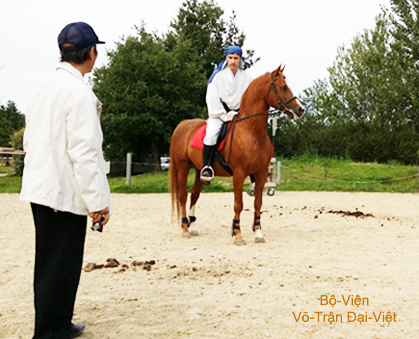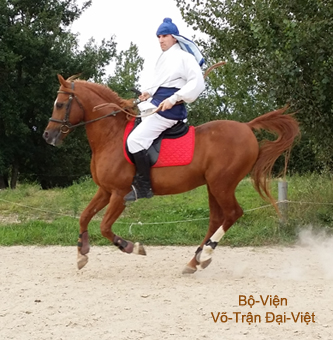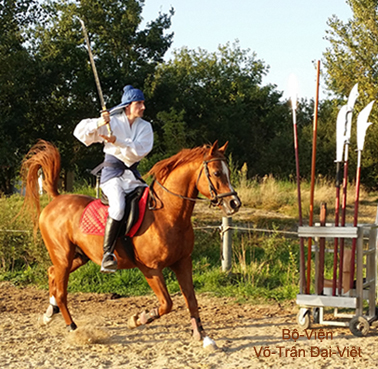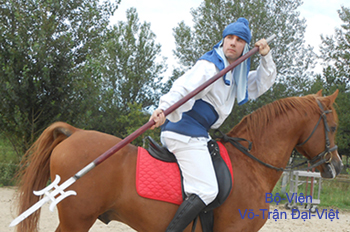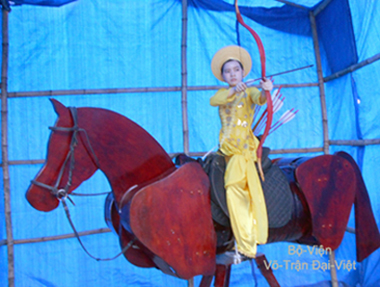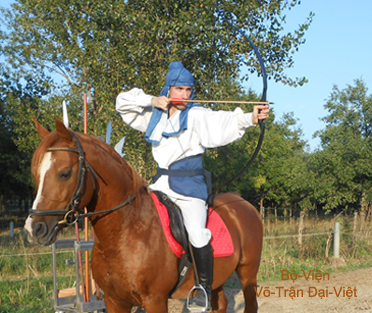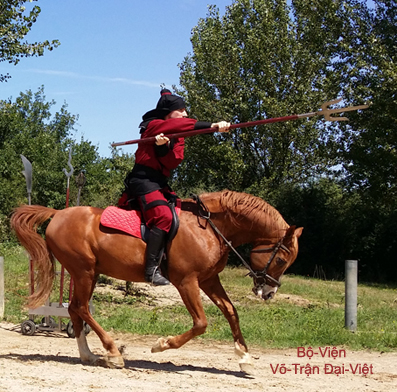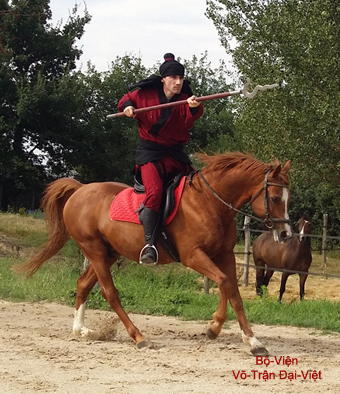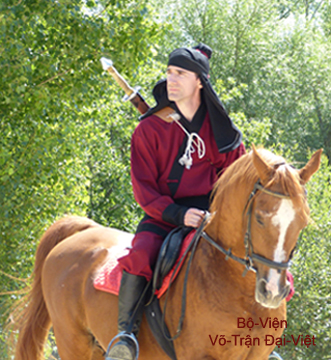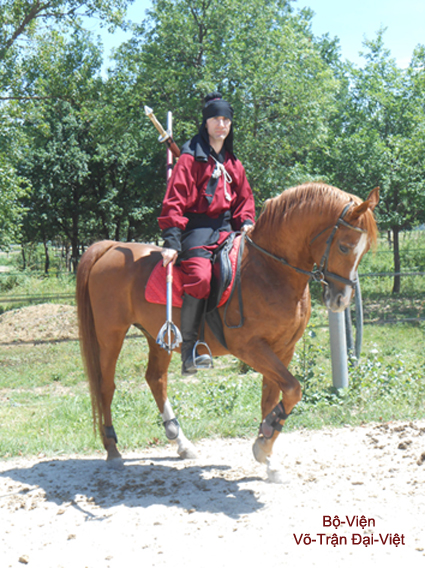II.
The Medieval Military Horse Riding
Part I
Teaching Program
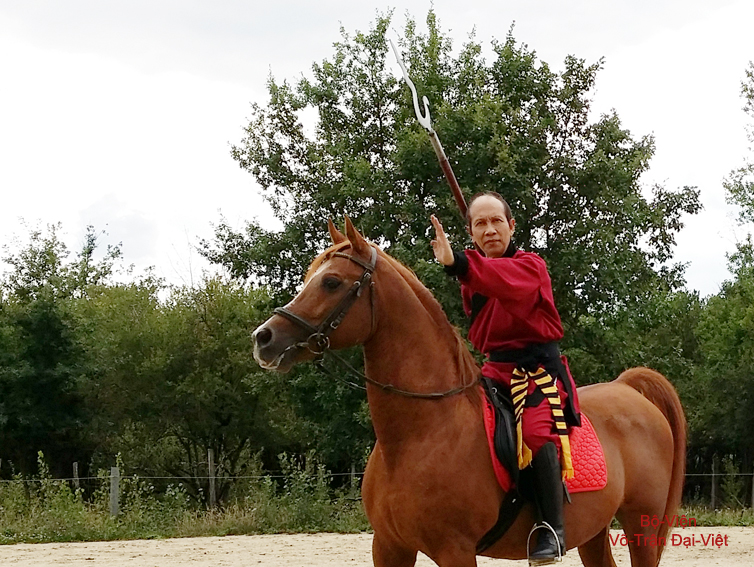
Martial Arts Master Trịnh Quang Thắng
from VÕ-TRẬN ĐẠI-VIỆT School System
BÌNH-ĐỊNH SA-LONG-CƯƠNG
The Equestrian Martial Art study is an essential thing for Đại-Việt cavalrymen in order to allow them, on top of the Archery (Cung), to practiise the Sword (Kiếm) wielding and Blade-Breaker (Giản) wielding, then to train for specific Eight kinds of Pole Arms from Đại-Việt's Cavalry :
1. Fauchard or Breach Knife of Cavalry (Giáo) ;
2. Vouge of Cavalry (Siêu) ;
3. Spear (Thương) ;
4. Halberd of Cavalry (Kích) ;
5. Pertuisane (Mâu) ;
6. Trident (Đinh-Ba) ;
7. Battle Axe (Phủ Việt) ;
8. Great War Mace (Đại-Trùy).
The Equestrian Martial Art of Ðại-Việt was still passed down until Nguyễn Dynasty (1802-1945).
The « Đại-Nam Register of Traditions and Facts Compendium established by Imperial Order » have so discribed an early morning martial drill day :
«The equestrian military training area outside the South-East from the Citadel was a land strenching from the la Portique Đông-Ba into the foot of the Gia-Hội bridge at Huế. Emperor Tự-Đức ordered to organize in the year 1851 a program comprising one Section of 12 Men, 200 Combattants, 100 war Horses, a set of Five Elements Flags, one Banner of Imperial Guard, 20 Battalion Flags, 80 Muskets, 80 Sabres of Cavalry, 26 Sabres of Standard-bearers, one brass Megaphone, one copper Cymbal on watch, one Cymbal of parade, one Conch, one war Drum and one battle Gong, 240 Spears, a request number of Dummies and Banana Trunks for morning training…»
To achieve the Conservation and the Restoration of Vietnamese Traditional Martial Arts Studies so that they are compatible with the authentic Martial Arts School System of Battlefields from Đại-Việt, Students of BÌNH-ĐỊNH SA-LONG-CƯƠNG engage in the training for Medievale Military Horse Driving.
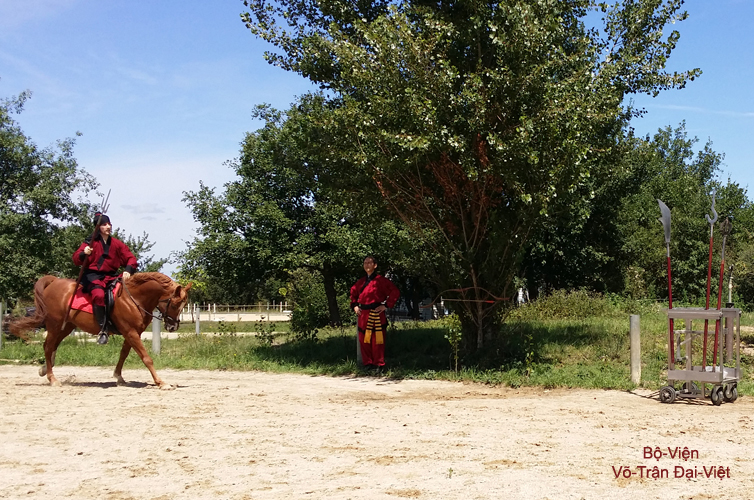
Martial Studient giving oneself up to training for Medieval Military Horse Riding of Đại-Việt
(Mã-Thuật Võ-Trận Đại-Việt).
Master Trịnh Quang Thắng of Võ-Trận Đại-Việt
Section |
Master Trịnh Quang Thắng of Võ-Trận Đại-Việt
Section . |
Martial Student of Võ-Trận Đại-Việt
Section
|
Martial Student of Võ-Trận Đại-Việt
Section
|
Martial Student of Võ-Trận Đại-Việt
Section
from
|
Martial Student of Võ-Trận Đại-Việt
Section
from
|
Martial Instructor NGUYỄN Phi-Hổ Marc of Võ-Trận
|
Martial Student LÊ Anh-Tuấn Philippe of Võ-Trận Đại-Việt
Section
from
Bình-Định Sa-Long-Cương School System was training
|
Martial Student of Võ-Trận Đại-Việt
Section
from
|
Martial Student of Võ-Trận Đại-Việt
Section
from
|
Martial Student of Võ-Trận Đại-Việt
Section
from
|
Martial Student of Võ-Trận Đại-Việt
Section
from
|
Martial Student of Võ-Trận Đại-Việt
Section
|
Martial Student of Võ-Trận Đại-Việt
Section
from
|
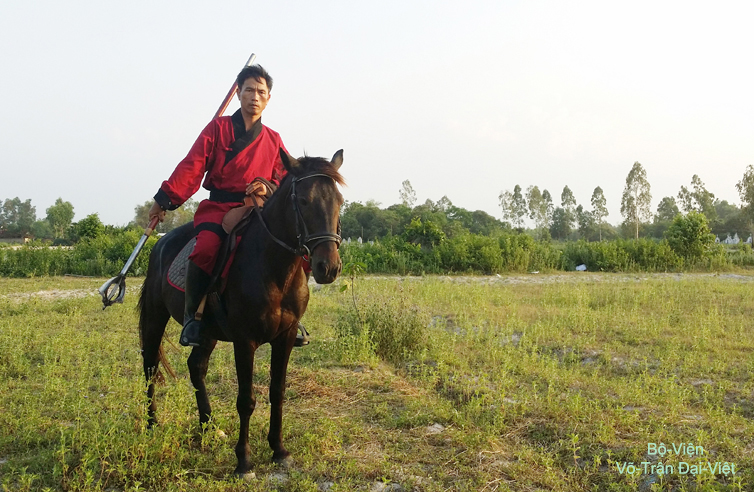
Martial Student of Võ-Trận Đại-Việt
Section
from
Bình-Định Sa-Long-Cương School System
training for « Great War Mace - Đại-
Trùy » wielding on War Horse.
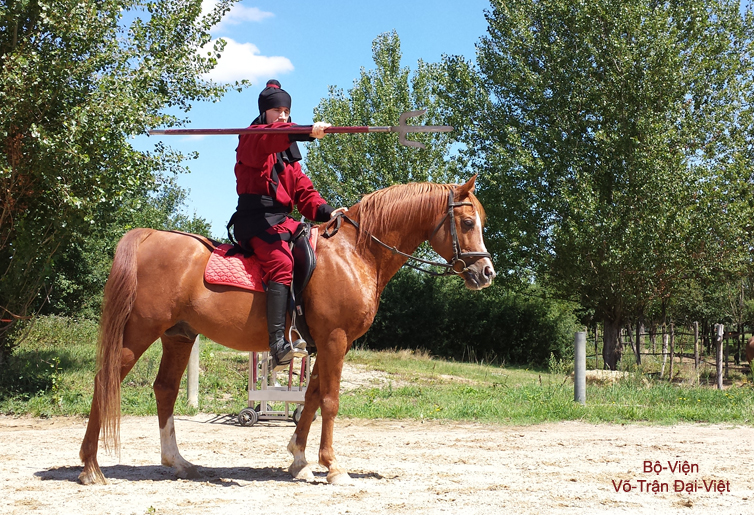
Martial Student of Võ-Trận Đại-Việt
Section
from
Bình-Định Sa-Long-Cương School System
training for « Trident - Đinh-Ba » wielding on War Horse.
Martial Student of Võ-Trận Đại-Việt
Section
from
|
Martial Student of Võ-Trận Đại-Việt
Section
from |
Martial Student of Võ-Trận Đại-Việt
Section
from
|
Martial Student of Võ-Trận Đại-Việt
Section
from
|
On top of the training for Martial Arts in order to know using various Weapons in the Eighteen Sections of Martial Arts, the « Military Equestrian Art » requires the choice of Wars Horses, the Harnessing, above all the Horse Driving Exercices.and the training for the Horseback Medieval Weapons Wielding.
1 – The Choice of War Horses
2 – The Harnessing
3 – The Horses Riding Exercises
4 – The Training for Horseback Medieval Weapons Wielding
(To be continued...)
Committee of |
Bibliography :
« Đại-Nam Register of Traditions and Facts Compendium established by Imperial Order » (Khâm Định Đại Nam Hội Điển Sự Lệ) from ”Institut of the Nation History" (Quốc-Sử Quán) - book numbered 175, Ed.1856-1884.
« Complete Book of Việt History » ("Việt-Sử Toàn-Thư") from Phạm-Văn-Sơn.
« Comments from a LiIbrary » ("Vân Ðài Loại-Ngữ") from Lê-Quí-Ðôn.
Copyright © 2004 - 2018 by ACFDV - All rights reserved.
